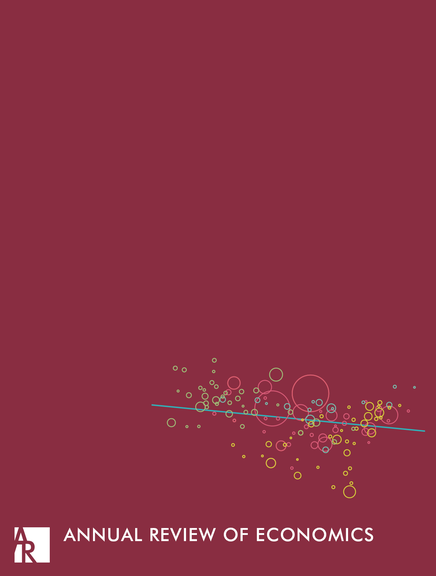The Macroeconomics of Financial Speculation
IF 11.4
2区 经济学
Q1 ECONOMICS
引用次数: 0
Abstract
I review the literature on financial speculation driven by belief disagreements from a macroeconomics perspective. To highlight unifying themes, I develop a stylized macroeconomic model that embeds several mechanisms. With short-selling constraints, speculation can generate overvaluation and speculative bubbles. Leverage can substantially inflate speculative bubbles, and leverage limits depend on perceived downside risks. Shifts in beliefs about downside tail scenarios can explain the emergence and the collapse of leveraged speculative bubbles. Speculative bubbles are related to rational bubbles, but they match better the empirical evidence on the predictability of asset returns. Even without short-selling constraints, speculation induces procyclical asset valuation. When speculation affects the price of aggregate assets, it also influences macroeconomic outcomes such as aggregate consumption, investment, and output. Speculation in the boom years reduces asset prices, aggregate demand, and output in the subsequent recession. Macroprudential policies that restrict speculation in the boom can improve macroeconomic stability and social welfare.金融投机的宏观经济学
我从宏观经济学的角度回顾了由信仰分歧驱动的金融投机的文献。为了强调统一的主题,我开发了一个程式化的宏观经济模型,其中嵌入了几个机制。由于卖空限制,投机行为可能导致估值过高和投机泡沫。杠杆可以极大地吹大投机泡沫,而杠杆限制取决于预期的下行风险。对下行尾部情景信念的转变,可以解释杠杆投机泡沫的出现和破灭。投机泡沫与理性泡沫相关,但它们更符合有关资产回报可预测性的经验证据。即使没有卖空限制,投机也会引发顺周期资产估值。当投机行为影响总资产的价格时,它也会影响宏观经济结果,如总消费、投资和产出。繁荣时期的投机行为降低了资产价格、总需求和随后衰退时期的产出。在繁荣时期限制投机的宏观审慎政策可以改善宏观经济稳定性和社会福利。
本文章由计算机程序翻译,如有差异,请以英文原文为准。
求助全文
约1分钟内获得全文
求助全文
来源期刊

Annual Review of Economics
ECONOMICS-
CiteScore
9.70
自引率
3.60%
发文量
34
期刊介绍:
The Annual Review of Economics covers significant developments in the field of economics, including macroeconomics and money; microeconomics, including economic psychology; international economics; public finance; health economics; education; economic growth and technological change; economic development; social economics, including culture, institutions, social interaction, and networks; game theory, political economy, and social choice; and more.
 求助内容:
求助内容: 应助结果提醒方式:
应助结果提醒方式:


